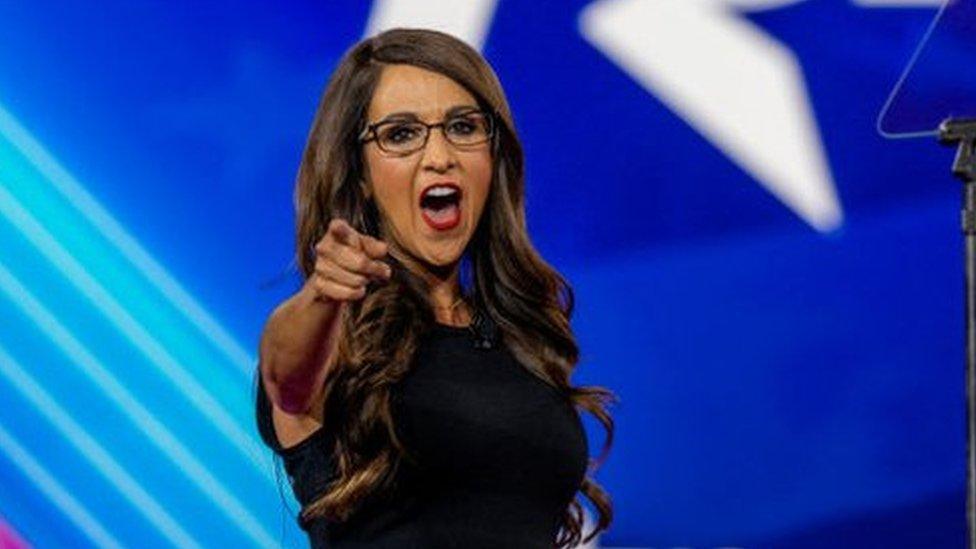Boebert to Lake: How many 2020 election deniers won their races?
- Published
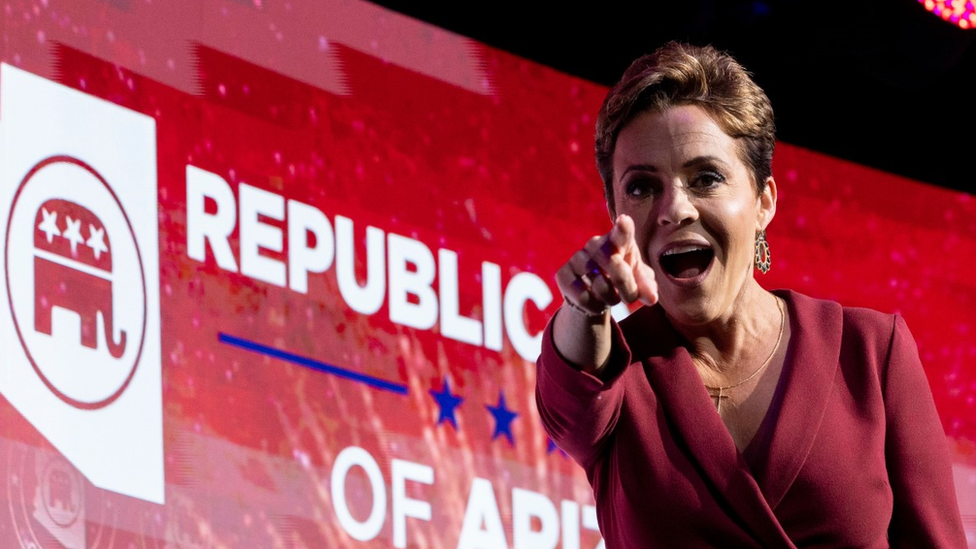
Kari Lake, a key promoter of unfounded voter fraud claims, was projected to lose her race for governor of Arizona
At least 126 Republicans elected in the US midterms have publicly denied the result of the 2020 presidential election, according to a BBC analysis.
They include Marjorie Taylor Greene, the controversial politician whose personal Twitter account was suspended for breaking rules on coronavirus misinformation, and JD Vance, a former Trump critic and successful author.
Donald Trump continues to insist, falsely, that he won the 2020 election.
Before the midterms, we analysed and independently verified data published by the website FiveThirtyEight, which tracked statements from all candidates running for the Senate, House of Representatives and state governor positions. We found 178 of them - all Republicans - had fully and publicly denied the result of the presidential race supporting Trump's false claim that he beat Joe Biden.
That accounted for more than one third of all Republicans standing in the races.
Our findings so far, one week after election day:
At least 126 election deniers have won House, Senate and governor seats
48 have lost their races
There are four House races involving election deniers yet to be called: Alaska's sole seat, where Sarah Palin is the Republican nominee, Lauren Boebert's race in Colorado, and two districts in California.
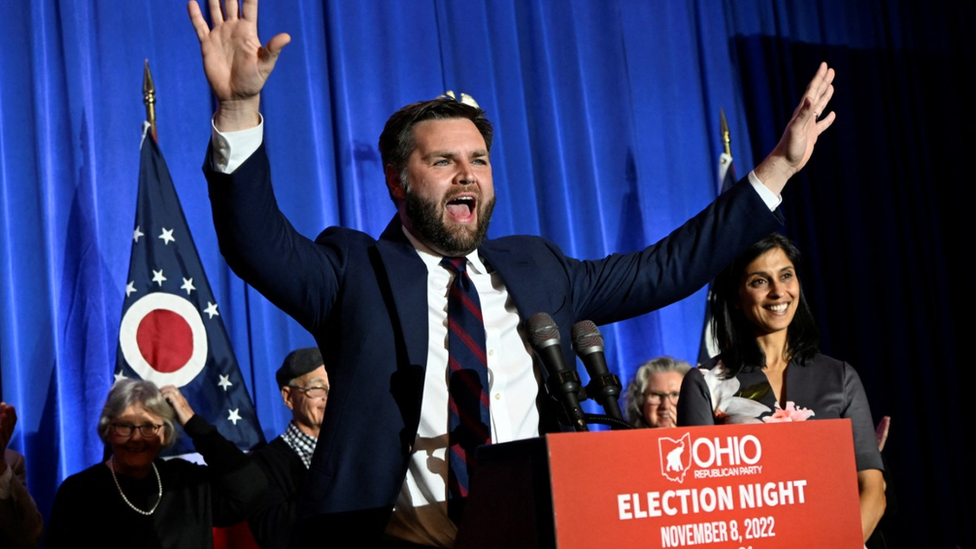
Republican candidate JD Vance won a seat in the US Senate
Many candidates were nominated in solid Republican voting areas, so victory was more or less guaranteed, but some surprising election night stories have emerged.
Bo Hines, a 27-year-old former college football star running for Congress in North Carolina was favoured to win, and endorsed by Donald Trump as a "proven winner on and off the field".
It wasn't to be though: he lost to Democrat Wiley Nickel, a lawyer who worked in the Barack Obama administration.
Lauren Boebert once shared QAnon conspiracies on her social media accounts and was known for her staunch pro-gun views, including a pledge to carry a handgun with her in Washington DC when she was first elected to Congress.
She holds a narrow lead in a district that favours Republicans, and her race against Democrat opponent Adam Frisch appears to be headed towards a recount.
In Arizona, former local news anchor Kari Lake was projected to lose her race for governor.
Ms Lake's social media pages include frequent allegations about rigged elections. In October 2021, she tweeted, external: "Voter fraud will herald the END of the Republic."
During the campaign, she was challenged by the BBC about her claims that there were hundreds of thousands of phoney ballots in 2020. She said - without providing proof - that the government had withheld evidence.
BBC's Katty Kay challenges Kari Lake on her 2020 election claims
There were problems with voting tabulation machines early on election day in Maricopa County, Arizona, home to the state's largest city Phoenix. About a fifth of machines in the county were failing to read ballot printouts which led to delays, although the problem was later resolved and election officials said there were backup systems in place to ensure votes were counted.
After news organisations called the governor's race for her opponent, Democrat Katie Hobbs, Ms Lake tweeted late Monday: "Arizonans know BS when they see it." She did not elaborate further.
Some election deniers exceeded expectations. George Santos, a New York Republican who attended the 6 January riot at the US Capitol but later called the event "a dark day in America", external, was considered unlikely to win, but secured a seat in the House.
But overall, many of the most devoted election deniers underperformed or lost outright.
Author of memoir-turned-film Hillbilly Elegy, JD Vance, won his race to represent Ohio in the Senate. Despite once describing Mr Trump as "reprehensible", he was later backed by the former president and flatly denied the result of the 2020 election.
While he won with 53% of the vote, Mr Vance garnered 380,000 fewer votes than Republican governor Mike DeWine, out of a total of about 4 million cast in Ohio.
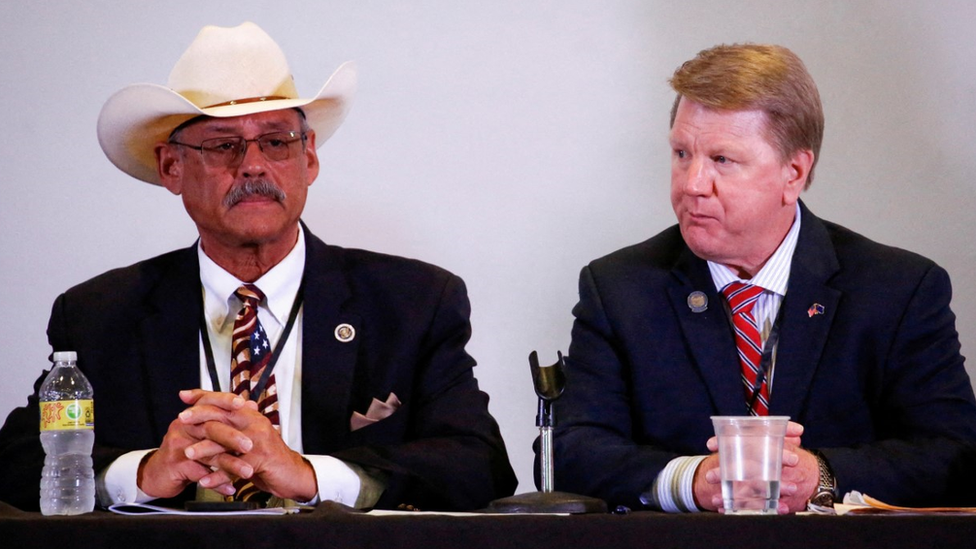
Pro-Trump secretary of state candidates Mark Finchem (l) and Jim Marchant (r)
Among the most staunch election deniers were seven candidates from the America First Secretary of State Coalition, a group that explicitly campaigned on the issue.
The group's founders also have links to QAnon - a wide-ranging, unfounded conspiracy theory that says that President Trump is waging a secret war against elite Satan-worshipping paedophiles.
Ms Lake was one of the members, but only one of the seven won - Diego Morales will be the secretary of state in Indiana.


Related topics
- Published3 November 2022

- Published9 November 2022
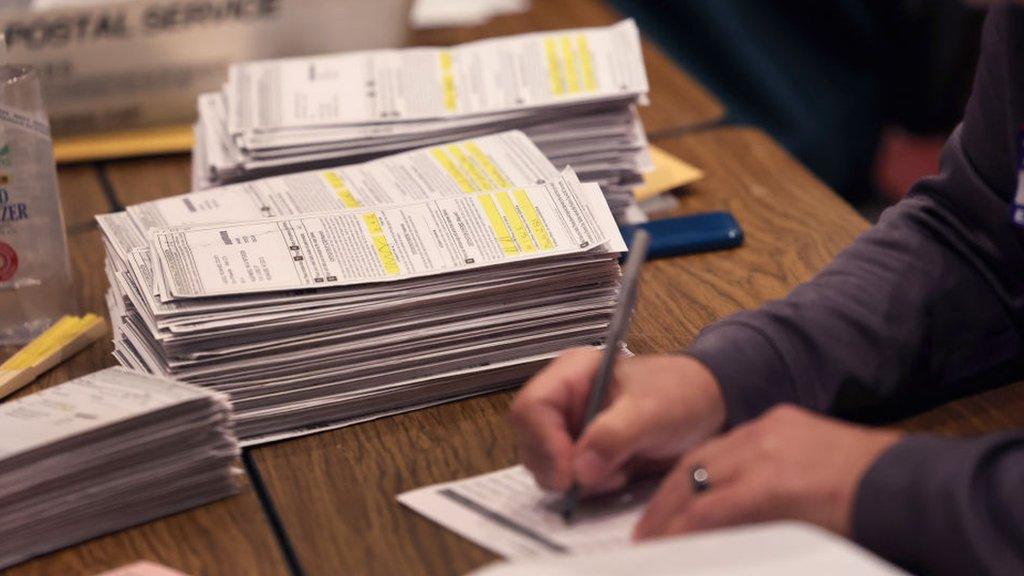
- Published9 November 2022

- Published8 November 2022
